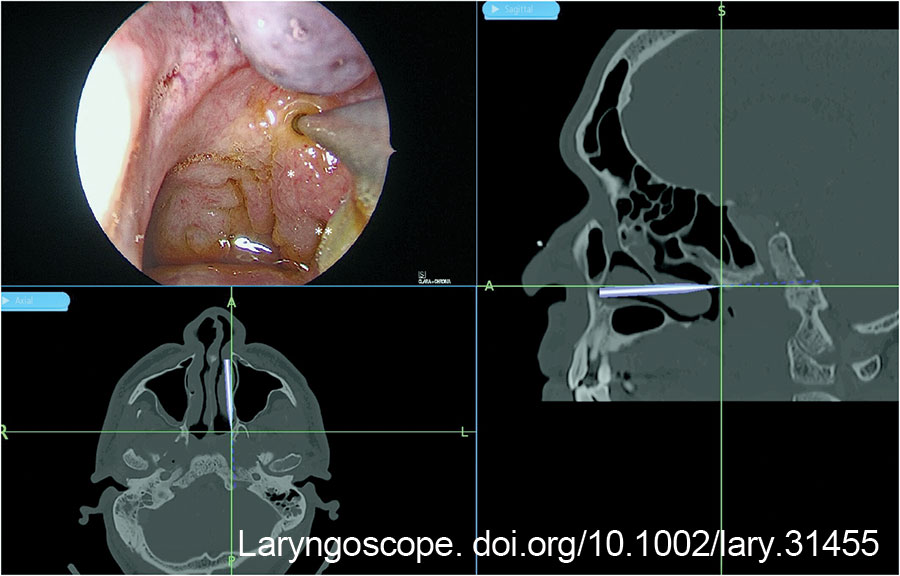What are the long-term outcomes of children with Eustachian tube dysfunction (ETD) who underwent concurrent balloon dilation Eustachian tuboplasty (BDET) and tympanostomy tube (TT) placement?
Long-Term Efficacy of Transoral Mandibular Preservation Therapy for T1-2 SCC of Lateral Oropharynx Confirmed
What does retrospective data reveal about the 10-year efficacy of transoral mandibular preservation surgery for patients with T1-2 squamous cell carcinoma (SCC) arising from the lateral oropharynx?
Hearing Loss Associated with Reduced Physical Activity Among Elderly without Hearing Aids
What is the impact of hearing status among older individuals on a variety of physical activities, and what association exists between hearing aid use and physical activity in individuals with hearing loss?
Integration of AI into Otorhinolaryngology Expands with Future Promise
CLINICAL QUESTION What are the implications of applying various branches of artificial intelligence (AI) to the subfields of otology, rhinology, laryngology, and head and neck? BOTTOM LINE Given its progression, […]

Taking Care of Complex Vulnerable Patient Populations
Hospital- and system-based training on emergency preparedness is likely a mandatory learning module for the healthcare workforce due to the increasing frequency of both natural and man-made disasters, from wildfires, floods, hurricanes, tornadoes, and snowstorms to mass casualties.

BREATHE-ing New Life into the Care of Pediatric Tracheostomy Patients
The BREATHE (Boosting REsources And caregiver empowerment for Tracheostomy care at HomE) study is a five-year, six-hospital trial that will advance understanding of how hospitals can better support caregivers of children with tracheostomies as they resume life, work, and family activities after discharge.

Shhhh! Quiet Quitting Isn’t a New Idea
Quiet quitting: A new term surfacing over the past several years is putting a contemporary spin on a long-term problem within the workforce.

Office Space in Our Hybrid World
Welcome to 2025! What will office space need to look like in 2030? 2035? Our hybrid world is most likely here to stay. What can be done to provide our […]

Reflections on TRIO’s Transformation
In the last dozen years or so, the Triological Society has undergone significant transformation, maturing and adapting to meet the contemporary goals and needs of its members.

How To: A Case Report of Transnasal Endoscopic Drainage for Upper Parapharyngeal Abscess
This is a case report of an upper parapharyngeal abscess arising from the progression of a central skull base osteomyelitis in a patient with poorly controlled diabetes mellitus. It’s unusual for its presentation in an upper parapharyngeal location, involvement of the skull base, and poor response to medical treatment, hence requiring transnasal endoscopic surgical drainage to achieve definitive treatment.
- « Previous Page
- 1
- 2
- 3
- 4
- 5
- …
- 327
- Next Page »